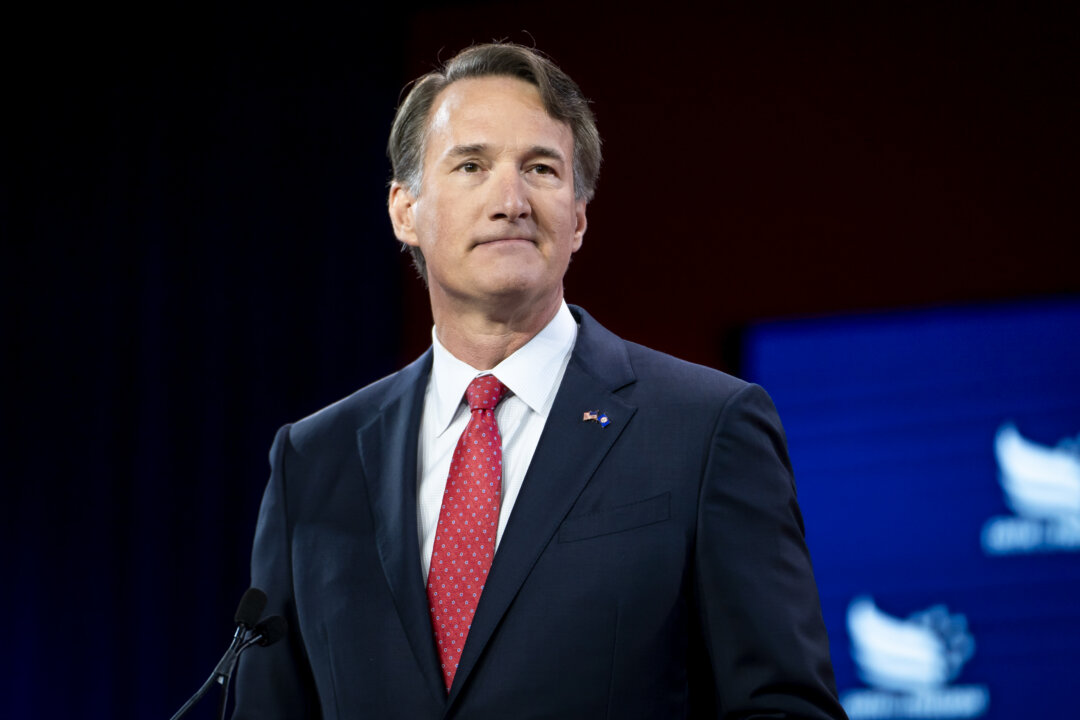The case had been sent back to the Fourth Circuit by the Supreme Court just before the 2024 election.
The Department of Justice (DOJ) has dropped a lawsuit which sought to stop the state of Virginia from removing non-citizens from its voter registration rolls.
That suit, brought by the DOJ under the Biden administration, stemmed from an Aug. 7 executive order by Virginia Gov. Glenn Youngkin that sought to tighten up the state’s voting processes.
In addition to other measures—including switching to paper ballots and sending out absentee ballots only by request—the state sought to purge voters from its rolls who were identified as non-citizens.
Virginia Attorney General Jason Miyares posted on Facebook that 6,303 ineligible voters had been removed as of Aug. 7. Around 1,600 more were subsequently removed.
The DOJ filed suit on Oct. 11, 2024, to stop the voter registration purge, on the grounds that the removals were too close to the Nov. 5, 2024, election, and violated the National Voter Registration Act, which says ineligible voters must be removed at least 90 days in advance.
It also alleged that some voters removed from the rolls were in fact citizens, but had failed to respond to a notice by the state that their registration was being canceled.
Judge Patricia Giles of the Eastern District of Virginia sided with the DOJ, and on Oct. 25 she blocked Youngkin’s order, and ordered that voters removed after Aug. 7 be reinstated.
Virginia appealed the case all the way to the U.S. Supreme Court, saying the lower court was forcing the state “to place over 1,600 self-identified noncitizens back onto Virginia’s voter rolls, in violation of Virginia law and common sense.”
The National Voter Registration Act did not apply to the case, as those removed were not citizens, and therefore not voters, Virginia argued.
On Oct. 30, less than a week before the election, the Supreme Court overturned the block with a vote of 6–3, without providing an explanation for its ruling.
It also sent the case back down to the Fourth Circuit, where it has been pending further consideration.
The dismissal followed a shake-up at the DOJ with the return of President Donald Trump to the Oval Office.
The DOJ announced on Nov. 25 that it was dismissing its classified documents and election interference cases against Trump after he won the 2024 presidential election.
According to special counsel Jack Smith’s team, Trump can no longer be tried because of a longstanding DOJ policy that says sitting presidents should not be prosecuted.
Smith, who led the federal prosecution of Trump, resigned on Jan. 11, and members of his former team were fired by the new administration on Jan. 27.
On Jan. 29, the DOJ also moved to drop cases against two former Trump co-defendants, Waltine Nauta and Carlos De Oliveira, who had been charged in connection with his classified documents case.

